We're All off to Rather Cloudy Spain Actually
....Read more!
Considerations on sport, and such
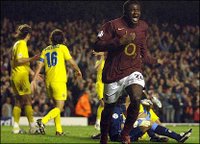


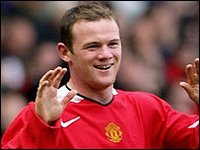
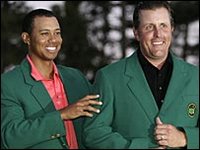

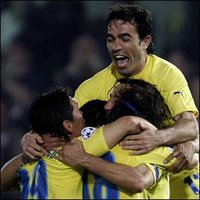
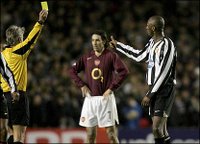
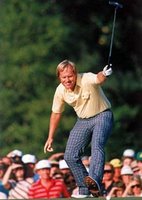 Twenty years ago this week, Jack Nicklaus arrived at Augusta for the US Masters out of form and widely regarded to be over-the-hill. Languishing 160th on the PGA Tour money list, he hadn't won a tournament in two years nor a major in six. He had missed the cut in three of the four tournaments he played that year. Yet, by Sunday, he had stormed to his sixth Masters title in the most thrilling fashion imaginable.
Twenty years ago this week, Jack Nicklaus arrived at Augusta for the US Masters out of form and widely regarded to be over-the-hill. Languishing 160th on the PGA Tour money list, he hadn't won a tournament in two years nor a major in six. He had missed the cut in three of the four tournaments he played that year. Yet, by Sunday, he had stormed to his sixth Masters title in the most thrilling fashion imaginable.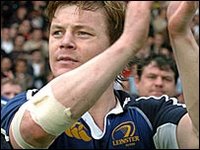
Such was the sheer joy of Leinster's performance and the stunning elan of the way that Michael Cheika and David Knox - and the genius of Felipe Contepomi - have got their team playing, that it is no longer easy to just dismiss Leinster as foppish wastrels, profligate offspring who are destined to disappoint.
Used to doing their talking on the field, it is not the Munster way to strut and brag. Cuter than that, what you would hear was more like "ah yeah, they're looking good Leinster - Jesus if we play like we did today against them they'll murder us" - a sly old statement which says: "they are good and merit our respect, but we have more to come, and don't you forget it". All the same, that Leinster are a force to be reckoned with at last is evident on their rivals' countenances.
The way that the two sides are playing, based on Saturday's day of days, polarises the two sides and their respective ethoi more than ever. Munster heaved and squeezed and ground their way to the semi-finals, ten-man style; Leinster are in danger of inventing eight-man rugby: Keith Gleeson digging out what he can and then, taking it from there, the men behind, that Magnificient Seven which reads as mouth-wateringly to Irish rugby fans as movie-goers in 1960 must have perused the names of Brynner, McQueen, Coburn and friends.
In fairness, as Malcolm O'Kelly pointed out, the Leinster pack performed admirably on Saturday, holding their own as they needed to, giving just enough breathing space for the backs. And Munster will have a couple of Celtic League matches to get some fitness into Christian Cullen's legs and will undoubtedly craft a better solution in the centre than Tomas O'Leary, the converted novice scrum-half. But history's broad panorama doesn't really pick up such light and shade.
There are three long weeks to go, plenty time to speculate. In one vision I can see a damp day at Lansdowne, O'Gara and Stringer at the helm and the monster in front of them rolling all over the gentle flowers of the local parish. A different premonition sees Munster, blunted by Leinster's visceral tackling and their own attacking shortcomings, coughing up possession and being caught repeatedly by rapier counter-attacks of their opponents' blue steel.
Nothing for it then. Roll on April 23rd - the soul of Irish rugby is up for grabs!